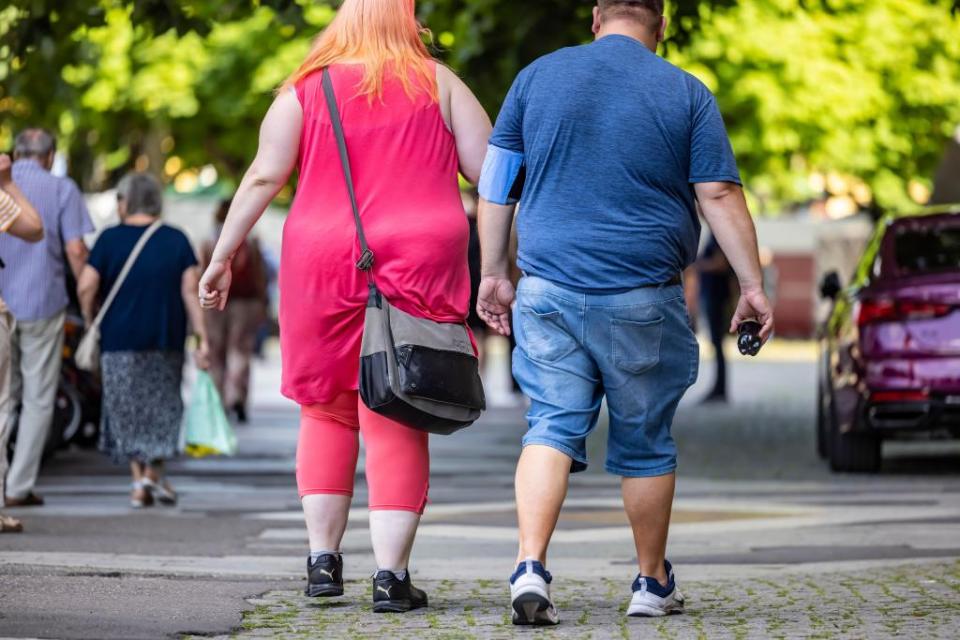Are your parents fat? You’re six times more likely to struggle with obesity in middle age, experts say

Here’s a hefty inheritance you could probably do without.
If your parents packed on the extra pounds in middle age, you’re six times more likely to do the same, a new study suggests.
Struggling with obesity tends to follow a individual throughout their lives, researchers at the University of Norway said, but the data showed that people whose parents were obese in middle age had a much higher chance of struggling with the condition themselves between the ages of 40 and 59.
“We found that this is indeed the case — children whose parents lived with obesity are much more likely to be living with obesity themselves when they are in their 40s and 50s, long after they have left home,” lead researcher Dr. Mari Mikkelsen said in a statement.
“Previous research shows a strong association between parents’ and their children’s obesity status, but few studies have investigated whether this intergenerational transmission of obesity continues past adolescence and into adulthood,” Mikkelsen said.
Study authors analyzed data from 2,068 trios of adults and their parents. The team gathered data from 2015 to 2016 and 1994 and 1995 to compare family members’ health at the same age.

The findings are set to be presented at the European Congress on Obesity in Venice, Italy in May.
Obesity is defined as a body mass index (BMI) over 30, which is when the average person is considered to have abnormal or excessive fat accumulation that presents a health risk, according to the World Health Organization (WHO).
The condition is on the rise worldwide, with the WHO reporting that the percentage of adults 18 years of age and older living with obesity more than doubled from 7% to 16% from 1990 to 2022.
The recent research found that a person’s BMI increased by 0.8 units for every four-unit increase in the mother’s BMI, and by 0.74 units for every 3.1 unit increase in the father’s BMI.
When both parents lived with obesity in middle age, adults were six times more likely to develop the condition by middle age, compared to adults whose parents reported a healthy BMI.
Those who only had a mother who lived with obesity had 3.44 times higher odds of living with obesity, while those who only had a father who lived with the condition had a 3.77 higher chance of being obese in middle age.
“Genes play an important role by affecting our susceptibility to weight gain and influence how we respond to obesogenic environments in which it can be easy to eat unhealthily,” Dr. Mikkelsen explained.

“Some studies also speculate that children tend to develop similar dietary and exercise habits to their parents when they all live together under the same roof, resulting in a similar BMI status.”
The research doesn’t determine if this is due to genes or environment, however.
Data from the Centers for Disease Control and Prevention found that in 22 states in 2022, at least 35% of adults were obese — an increase from 19 states in 2021.
The CDC noted that 10 years ago, there were no states that had an adult obesity prevalence at or above 35%.
Obesity can lead to major health risks for a long list of chronic illnesses, including cardiovascular diseases, which are the leading causes of death worldwide.
